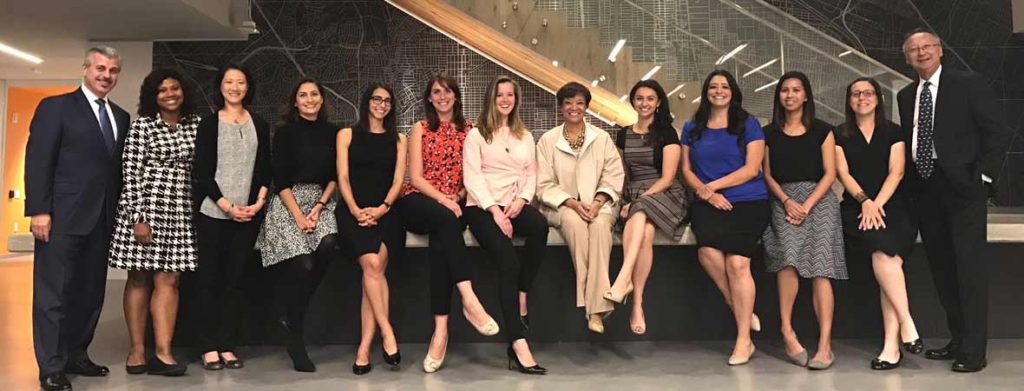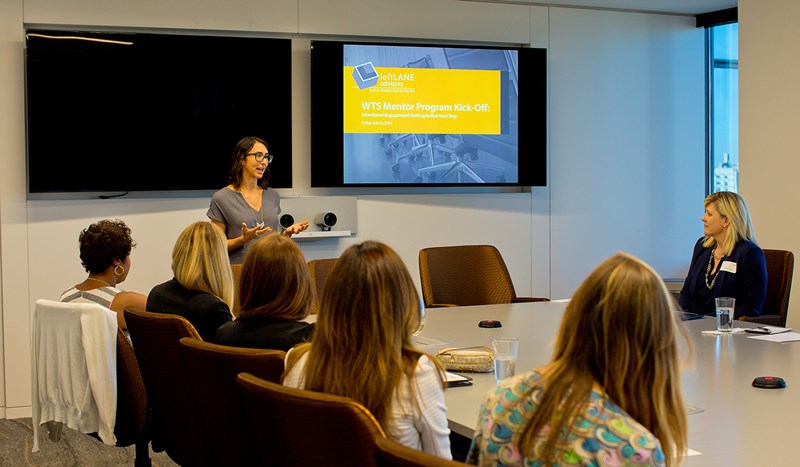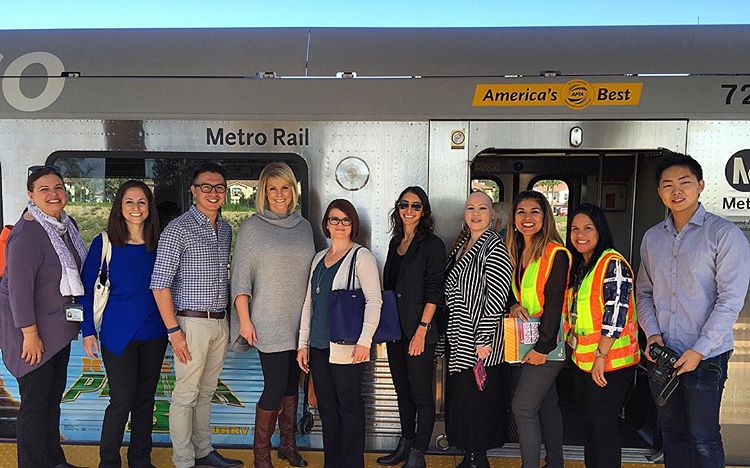Want to see more women and diversity at work? Don’t let the statistics discourage you
In recognition of International Women’s Day on March 8, and this year’s theme, #BalanceforBetter, we are featuring stories from our leaders and employees throughout the week of March 4, describing their own approach to workplace equality and honoring inclusion and diversity.
When I transitioned from the public to the private sector as an urban planner more than seven years ago, I found myself in a whole new world. Not only was I moving from being a client to a consultant, but I was also entering a sector where women are (even less) represented.
According to the American Planning Association’s 2018 Salary Survey, 43 percent of urban planners in the United States are women. While this certainly leaves room for improvement, it is vastly better than women’s representation in the architecture and engineering fields, which was only 14 percent in 2016, according to the US Bureau of Labor Statistics.
I was often the only woman on a project team, at an interview or in a meeting. Looking up the ladder at company organizational charts wasn’t very promising either — it seemed the higher you go, the less women were represented. This problem is not unique to this sector or AECOM. According to the Pew Research Center, women are underrepresented across the board, from university presidents, to CEOs and corporate board members, to the U.S. Senate. Women’s stark underrepresentation was apparent to me and influenced my thoughts around my own role and future with our company.
Rather than being discouraged by this reality, I found opportunities to find allies, engage and serve and support other women to advance equity and diversity in our workplace.

Copyright 2019 John Livzey
I was and am fortunate that AECOM is fully committed to the Women’s Transportation Seminar (WTS), a professional organization dedicated to advancing women in transportation. Stephen Polechronis, LA Metro Transportation Business Unit Leader, recommended and assisted me in becoming a board member for the Los Angeles Chapter, where he is also a director at large. I served three years on the Los Angeles Chapter board as a chair of the mentorship and membership committees. With Stephen, we launched an executive mentorship program that helped women connect with senior executives throughout Los Angeles and learn how to break the glass ceiling.
I’m now serving my second year as a mentor for the WTS Bay Area Chapter, repaying the assistance to the WTS community that was invaluable to me. Through WTS, I have also engaged with and found a network of like-minded women within AECOM through our WTS Chatter group. WTS helped me expand my network and find allies and mentors (both men and women) who helped me define my own place in the industry. Importantly, it also enables me to connect with and mentor other women entering the field, creating a virtuous loop of support.

Copyright 2019 John Livzey
Over time, I have also had the opportunity to engage with amazing women leaders within AECOM from the local to the corporate level: Kelli Bernard, Executive Vice President, National Cities Lead; Carolyn Flowers, former national Transit Practice Leader; Lara Poloni, Chief Executive of EMIA; Carla Christofferson, General Counsel; and Heather Rim, Chief Marketing and Communications Officer, just to name a few. These women, their allies, and others like them throughout the company are changing the dynamic at the highest leadership levels. Through their work on issues such as the gender pay gap, their service to community organizations such as those addressing women’s homelessness, and their presence they serve as an inspiration and provide hope for an even more equitable, inclusive AECOM.
Underrepresentation of women and a lack of diversity in our industry is widespread, however, each of us has a role to play in changing this, and a responsibility to do so. If we don’t represent ourselves and support increased diversity and inclusion, who will? Luckily, with 87,000 employees worldwide there’s no need to feel alone at AECOM. Find an ally, engage with a professional organization that advances diversity and inclusion and serve and support those you are working with.







